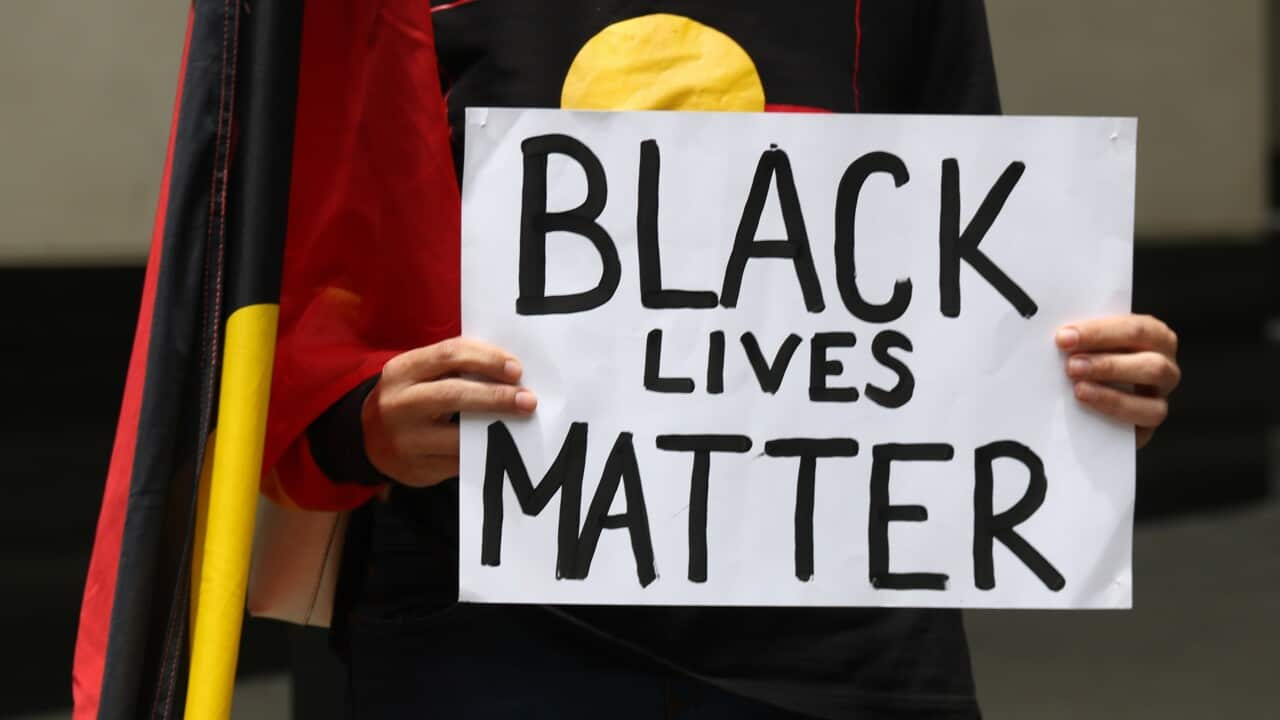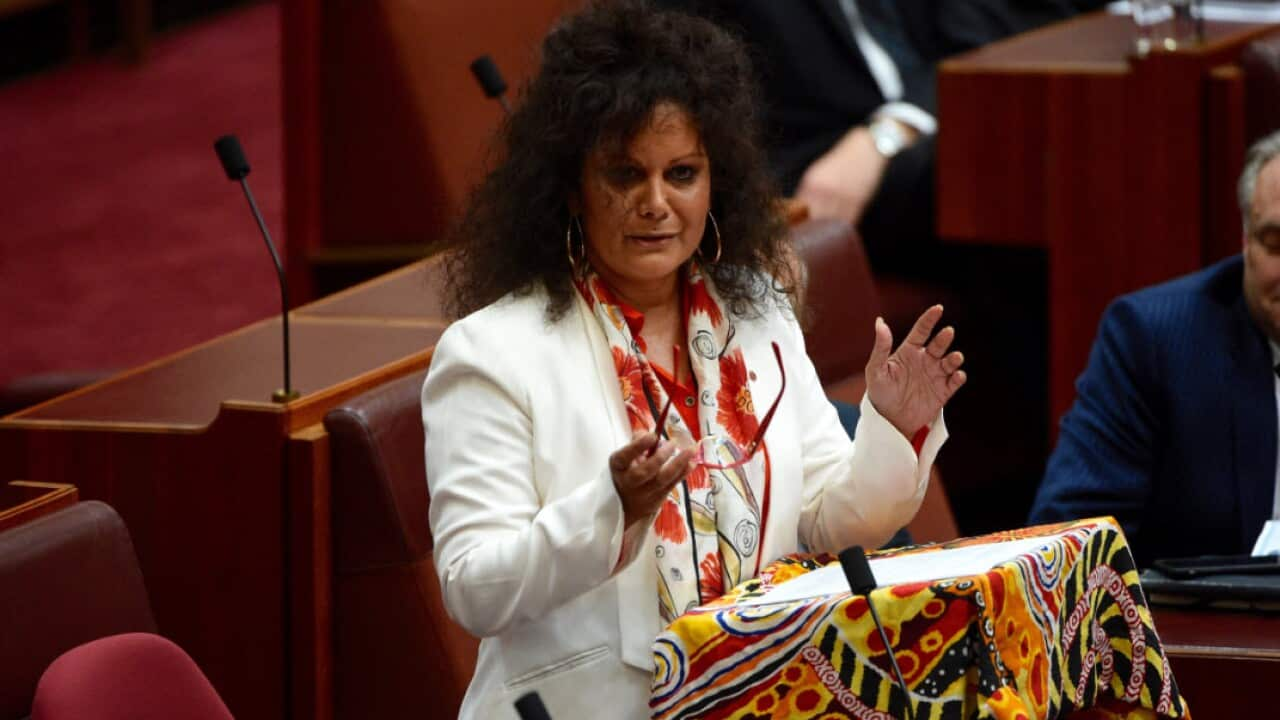Amid last week’s headline clashes about guns, smashed avocado and Abbott vs. Turnbull Redux, a small, vital piece of news that came out of Canberra didn’t get the attention it deserved. On Friday, Indigenous Affairs Minister Nigel Scullion that a NSW hotline widely credited with preventing Indigenous deaths in police custody will be rolled out nationwide.
It’s hard to overstate the potential impact of this announcement. The NSW , which has been in place since 2000, is a measure mandating that police must notify the Aboriginal Legal Service whenever an Aboriginal or Torres Strait Islander person is taken into custody. A 24-hour hotline largely staffed by volunteers and run on a shoestring budget, the CNS acts as a vital link between a person in police custody and the outside world, informing family members and loved ones of their situation, providing legal advice and monitoring their physical and mental health.
Standing entirely on its own, rolling out the CNS to all states and territories is an important, unalloyed good. But several factors make this news bittersweet. Earlier this year, someone slipped through the safety net the CNS usually provides. On the night of July 19, 36-year-old Indigenous woman was picked up by police as she was walking by the side of the road and placed in a cell at Maitland police station. Contrary to legal protocol, officers did not inform the ALS of Maher’s detainment. Five hours later she was dead. The ALS was not informed of Maher’s death for 24 days, and Maher’s family, who were unaware she had been taken into custody, were not informed of her death for more than six hours.
Maher’s death — the first Indigenous death in custody in NSW since the service was introduced in 2000 — highlighted how desperately similar measures are needed in states and territories without them. A nationwide custody notification service was recommended by the Royal Commission into Indigenous deaths in custody way back in 1991, but like most of the other 338 recommendations included in the Commission’s final report, it was ignored by federal and state governments. In jurisdictions like the Northern Territory, Queensland and Western Australia, of Indigenous deaths in custody have been recorded since the Royal Commission first handed down its findings.
Which is what makes the needless death of Maher and hundreds of others even more obscene. For 25 years, policymakers have had every tool they need to stop Indigenous people dying in police watchhouses and jail cells. Instead, funding for programs like the CNS is often first in line when governments are looking to make quick budget savings. Last year, the Abbott government planned to out of ALS NSW/ACT’s budget, only after a concerted campaign of opposition. Despite pledging to “sweat blood” for Aboriginal people throughout his tenure, Abbott wasn’t even aware the cuts were in the offing until he was questioned about them by . The 2016 budget saw of $6 million to Aboriginal legal services nationwide.
"Funding for programs like the CNS is often first in line when governments are looking to make quick budget savings"
The routine indifference and ignorance with which federal politicians treat Indigenous justice has seen this state of affairs continue for more than two decades, and manifest itself in other ways. Scullion — besides the Prime Minister, the person with the most authority over Indigenous affairs in Australia — displayed that same shameful ignorance when he fronted a Senate estimates hearing into the Don Dale detention centre scandal on Friday. Grilled by Indigenous Labor Senators Pat Dodson and Malarndirri McCarthy, Scullion had no answers for why his department failed to act on information about conditions inside Don Dale, as well as failing to implement many of the 1991 Royal Commission’s most basic recommendations.
"Scullion had no answers for why his department failed to act"
Dodson said that Scullion’s testimony amounted to "an appalling demonstration of ignorance about the criminal justice system and its interface with Indigenous peoples", and scathingly recommended that Scullion’s advisers go and read the original 1991 recommendations.
“I think some of the fantastic commissioners [of the 1991 Royal Commission] who have since passed would be absolutely horrified to listen to the discussion here today”, Dodson said.
Friday marked the first time that multiple Aboriginal Parliamentarians have sat on an Estimates panel into Indigenous affairs — an advent which helps put Scullion’s CNS announcement into context. With experienced, knowledgeable Indigenous Senators like Dodson and McCarthy in a position to influence and direct policy, governments of all persuasions are going to have to lift their game. Platitudes in place of policy won’t wash anymore, even though they never should have. It’s taken 25 needless years, but the 1991 Royal Commission might finally be about to get the recognition it deserves.
-
*An earlier version of this article incorrectly stated that a nationwide CNS was not being pursued by Indigenous Affairs Minister Nigel Scullion until after Ms Maher's death. This mistake has been amended.
MORE FROM ALEX MCKINNON

OPINION: Is it time to recognise the Northern Territory as a failed state?
Alex McKinnon is a journalist based in Sydney. Most recently he served as political and opinion editor of pop-culture website Junkee and editor of the Star Observer, Australia's longest-running LGBTI newspaper.












